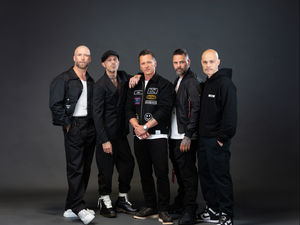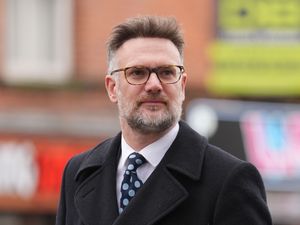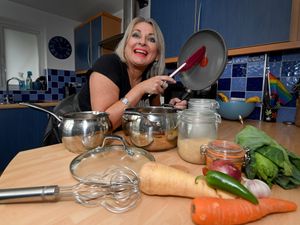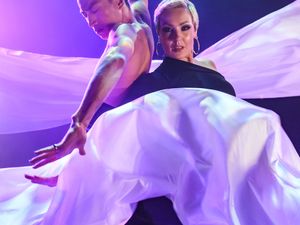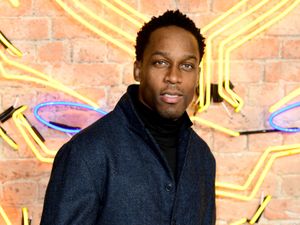Sport Relief raises more than £40 million after live broadcast
The event took place in front of a live studio audience, despite fears over the coronavirus.
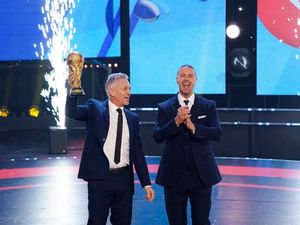
The BBC’s Sport Relief raised more than £40 million by the end of its live broadcast, with organisers promising a significant portion of the cash will go to those affected by the coronavirus.
The biennial charity event took place in front of a live studio audience in Salford, in defiance of the panic caused by the Covid-19 pandemic.
It looks set to be the last event of its kind for the foreseeable future, with the Government on the verge of banning mass gatherings in an attempt to halt the spread of the virus.

Despite the increasingly gloomy mood gripping the country, the star-studded Sport Relief broadcast managed to raise a total of £40,540,355.
That was more than 2018, when £38,195,278 was raised. The money goes to good causes in both the UK and abroad. This time around a chunk will be set aside to help coronavirus victims.
The night opened with a solemn address from one of the show’s hosts, Gary Lineker, who warned we were living in “unprecedented times”.
In another sombre early moment of the show, Lineker’s co-host Paddy McGuinness paid tribute to the late Love Island presenter Caroline Flack, who took her own life last month.
Flack, 40, had worked with both Sport Relief and Comic Relief. Top Gear host McGuinness said: “She will be greatly missed by us all. We send all of our love to her family”.
Rita Ora delivered the first performance of the night, with her hit How To Be Lonely.
She had been set to be followed by an intergenerational choir from Wales, with elderly singers teaming up with schoolchildren.

However, it was decided the older performers would stay in Wales as a precaution against the coronavirus.
Instead, the youngsters performed on their own, delivering a poignant cover of You’ve Got A Friend In Me from the Toy Story films.
As is usual for Sport Relief, there were plenty of sketches throughout the show.
One parodied the BBC’s award-winning drama Killing Eve. Titled Killing Steve, a group of celebrities named Steve were hunted down and killed by a mystery assassin in a blonde wig.
Olympic rower Sir Steve Redgrave, TV presenter Stephen Mulhern, Simon Gregson, who plays Steve McDonald on Coronation Street and Stephen Fry were all targeted.
The assassin turned out to be Little Britain’s David Walliams, who was acting on the orders of snooker player Steve Davis, who wanted to be the most interesting Steve in the world.
Police drama Line Of Duty was also parodied, with stars Vicky McClure, Adrian Dunbar and Martin Compston all appearing.
Actor Jason Isaacs played a police officer being investigated for alleged links to the mysterious H, while comedian Lee Mack starred as his bumbling lawyer.
The sketch ended with a revelation about H’s identity. Netflix’s Stranger Things was also featured.
Orlando Bloom, Tan France, Jennifer Saunders, Mark Strong and Emma Thompson all entered The Upside Down with the help of regular cast members Millie Bobby Brown, Noah Schnapp, Sadie Sink and Finn Wolfhard.
The British public voted Smithy at Sports Personality of the Year as the greatest Sport Relief sketch of all time.
Elsewhere, Sir Andy Murray played minigolf with comedian Romesh Ranganathan and Cheryl was stunned to see her close friend Kimberley Walsh taking part in a The Greatest Dancer spin-off.
BBC Radio 2’s Jo Whiley, Rev Kate Bottley and Richie Anderson were given a heroes’ welcome, as they joined Lineker and co-host Alex Scott on stage to complete their third triathlon in as many days as part of their gruelling Dare 2 Tri challenge for Sport Relief.
Arriving on stage, the group had already raised £510,909, having battled freezing cold open waters, punishing cycle routes and energy-sapping runs in Cardiff, Glasgow and Manchester.
It was not just the celebrities taking centre stage. Poignant films were shown throughout the show, highlighting how donations change lives in the UK and around the world.
Recipients of the cash include people who rely on homeless centres, food banks, domestic violence shelters, isolated older people and refugees.

